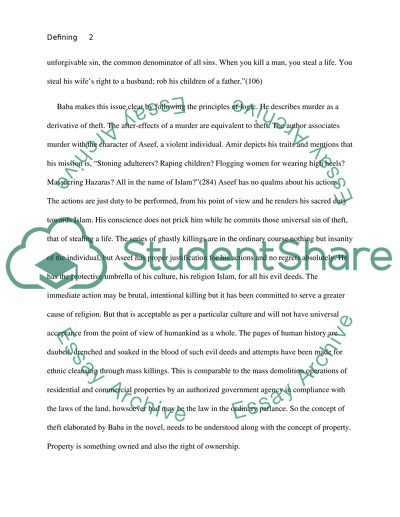Cite this document
(“Sin in The Kite Runner Essay Example | Topics and Well Written Essays - 1000 words”, n.d.)
Sin in The Kite Runner Essay Example | Topics and Well Written Essays - 1000 words. Retrieved from https://studentshare.org/english/1447129-defining-sin
Sin in The Kite Runner Essay Example | Topics and Well Written Essays - 1000 words. Retrieved from https://studentshare.org/english/1447129-defining-sin
(Sin in The Kite Runner Essay Example | Topics and Well Written Essays - 1000 Words)
Sin in The Kite Runner Essay Example | Topics and Well Written Essays - 1000 Words. https://studentshare.org/english/1447129-defining-sin.
Sin in The Kite Runner Essay Example | Topics and Well Written Essays - 1000 Words. https://studentshare.org/english/1447129-defining-sin.
“Sin in The Kite Runner Essay Example | Topics and Well Written Essays - 1000 Words”, n.d. https://studentshare.org/english/1447129-defining-sin.


